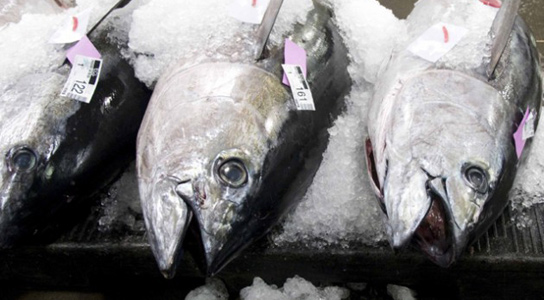
Overfishing due to growing consumer demand, as well as harmful fishing practices, has depleted tuna stocks. Credit: NOAA
At a meeting of the Western and Central Pacific Fisheries Commission, which is the governing body for international fisheries agreements seeking to ensure the conservation and sustainability of highly migratory fish, complaints were issued that big fishing nations had blocked efforts to curb tuna overfishing and ignored scientific advice.
Nanette Malsol, chair of the Parties of the Nauru Agreement (PNA), a management body for sustainable fisheries representing eight nations in the Oceania regions, states that the commission had failed to take its responsibilities seriously regarding the fate of tuna. The PNA has called for a stop of the overfishing of bigeye tuna, but delegates preferred to discuss how much overfishing to allow instead of finding ways to end it. If overfishing isn’t controlled in the tropical seas, global tuna stocks will continue to decline.
The EU, USA, and Japan have historically overfished tuna. Other members, like Taiwan and South Korea, have voluntarily agreed to cut their longline catch by 10% and 2% respectively. This is below the 30% reduction in total catch fish that the PNA and other conservation groups were calling on every country to make.
Every year, thousands of vessels catch more than 4 million tonnes of tuna, of which 60% is being taken from western and central Pacific regions. Japan catches and eats more tuna than any other nation.
Overfishing due to growing consumer demand, as well as harmful fishing practices, has depleted tuna stocks. The IUCN has put yellowfin and albacore tuna in the near-threatened category. Bigeye tuna is considered vulnerable.









Be the first to comment on "Pacific Fisheries Fail to Stop Tuna Overfishing"